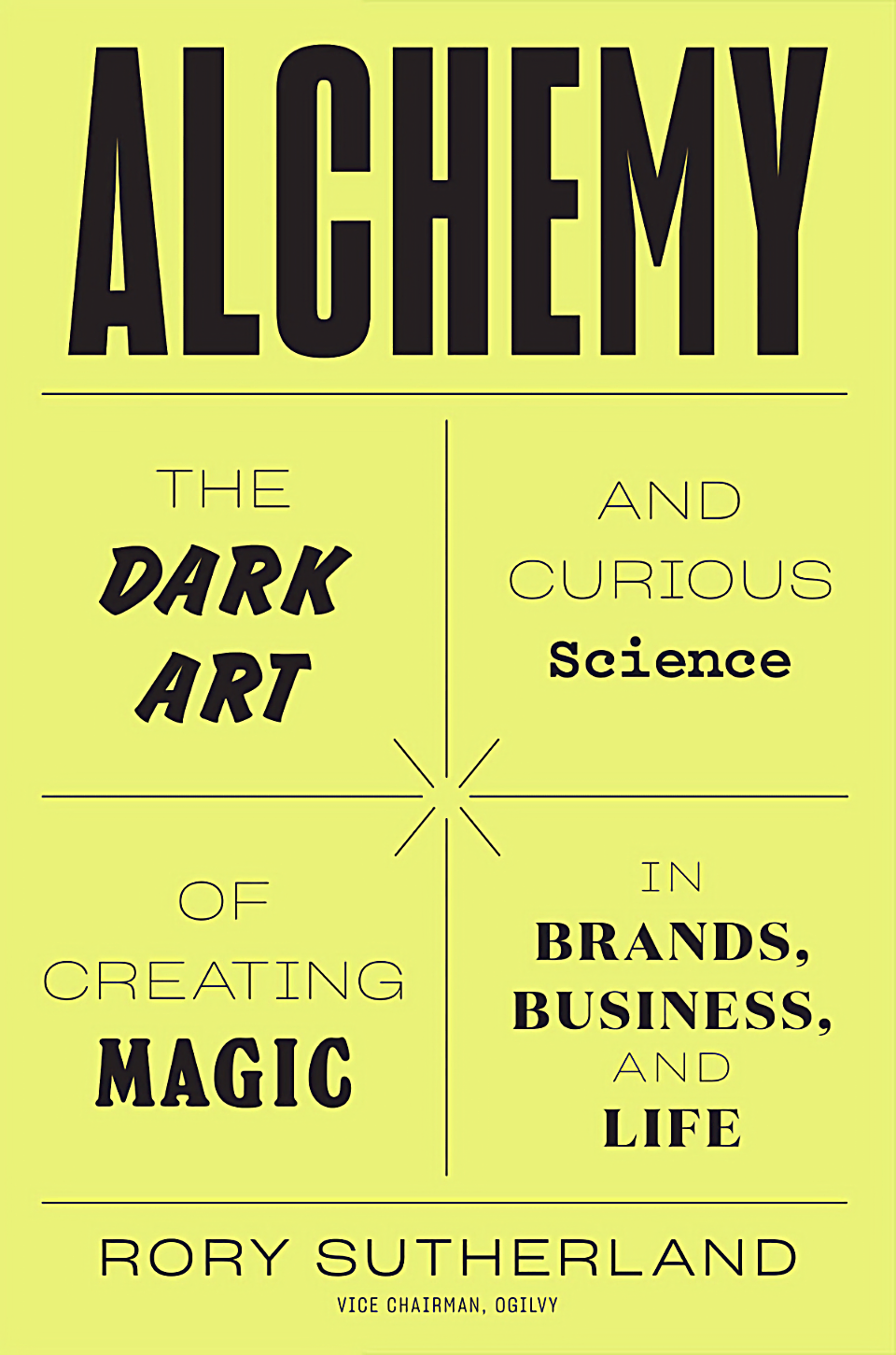Alchemy: The Surprising Power of Ideas That Don't Make Sense
by Rory Sutherland
Added:
2024 Jan 02
Description
Why is Red Bull so popular, though everyone—everyone!—hates the taste? Humans are, in a word, irrational, basing decisions as much on subtle external signals (that little blue can) as on objective qualities (flavor, price, quality). The surrounding world, meanwhile, is irreducibly complex and random. This means future success can’t be projected on any accounting spreadsheet. To strike gold, you must master the dark art and curious science of conjuring irresistible ideas: alchemy.
Based on thirty years of field work inside the largest experiment in human behavior ever conceived—the forever-unfolding pageant of consumer capitalism—Alchemy, the revolutionary book by Ogilvy advertising legend Rory Sutherland, whose TED talks have been viewed nearly seven million times, decodes human behavior, blending leading-edge scientific research, absurdly entertaining storytelling, deep psychological insight, and practical case studies from his storied career working on campaigns for AmEx, Microsoft, and others.
Heralded as “one of the leading minds in the world of branding” by NPR and “the don of modern advertising” by The Times, Sutherland is a unique thought leader, as comfortable exchanging ideas with Nobel Prize winners Daniel Kahneman and Richard Thaler (both interviewed in these pages) as he is crafting the next product launch. His unconventional and relentlessly curious approach has led him to discover that the most compelling secrets to human decision-making can be found in surprising places:
- What can honey bees teach us about creating a sustainable business?
- How could budget airlines show us how to market a healthcare system?
- Why is it better to be vaguely right than precisely wrong?
- What might soccer penalty kicks teach us about the dangers of risk-aversion?
Better “branding,” Sutherland reveals, can also be employed not just to sell products, but to promote a variety of social aims, like getting people to pay taxes, improving public health outcomes, or encouraging more women to pursue careers in tech.
Equally startling and profound, Sutherland’s journey through the strange world of decision making is filled with astonishing lessons for all aspects of life and business.
Notes & Highlights
1.8: ‘A Change in Perspective is Worth 80 IQ Points’
To put it crudely, when you multiply bullshit with bullshit, you don’t get a bit more bullshit – you get bullshit squared.
1.14: We Don’t Make Choices as Rationally as We Think
I believe academics and policy-makers might benefit from paying more attention to consumer marketing. Tiny things that you discover when selling bars of chocolate can be relevant in how you encourage more consequential behaviour. Usually someone has often already found an answer to your problem – just in a different domain.
1.17: The View Back Down the Mountain
One astonishing possible explanation for the function of reason only emerged about ten years ago: the argumentative hypothesis* suggests reason arose in the human brain not to inform our actions and beliefs, but to explain and defend them to others.
1.18 The Overuse of Reason
One explanation for why apparently logical arguments may be ineffectual at changing people’s minds, and why they should be treated with suspicion, is that it is simply too easy to generate them in the real world.
The more data you have, the easier it is to find support for some spurious, self-serving narrative. The profusion of data in future will not settle arguments: it will make them worse.
4.10: Why Hacking Often Involves Things That Don’t Quite Make Sense
The qualities we notice, and the things which often affect us most, are the things that make no sense – at some level, perhaps it is necessary to deviate from standard rationality and do something apparently illogical to attract the attention of the subconscious and create meaning.
My contention is that placebos need to be slightly absurd to work.
Meaning is disproportionately conveyed by things that are unexpected or illogical, while narrowly logical things convey no information at all.
5.6: JFK vs EWR: Why the Best Is Not Always the Least Worst
In his book Risk Savvy (2014), the German psychologist Gerd Gigerenzer refers to this mental process as ‘Defensive Decision-Making’ – making a decision which is unconsciously designed not to maximise welfare overall but to minimise the damage to the decision maker in the event of a negative outcome.
7.2: Alchemy Lesson One: Given Enough Material to Work On, People Often Try to Be Optimistic
This seems to offer an extraordinarily valuable psychological insight into the best way to divide unequal resources between a random collection of people – when presented with either good plus bad, bad plus good or average plus average, everybody seems equally content. In fact, we seem well-disposed to explicit trade-offs. A sentence which contains bad and good news, along the lines of, ‘Yes we admit downside x, but also think of upside y,’ seems particularly persuasive. Robert Cialdini has observed that, as you are closing a sale, the admission of a downside oddly adds persuasive power: ‘Yes, it is expensive, but you’ll soon find it’s worth it,’ seems to be a strangely persuasive construction – explicitly mentioning a product’s weakness enables people to downplay its importance and accept the trade-off, rather than endlessly worrying about the potential downside. If you are introducing a new product, it might pay to bear this in mind.
Endnotes
Not a single word of this book has been written in my office – just as David Ogilvy did not write a single advertisement in the office (‘Too many distractions,’ he said). And perhaps 80 per cent of it has been written on days where I had done pretty much nothing the previous day. As John Lennon observed, ‘Time spent doing nothing is rarely wasted’, yet the modern world seems to do all that it can to destroy the moments where alchemy might flourish.
Get a copy
